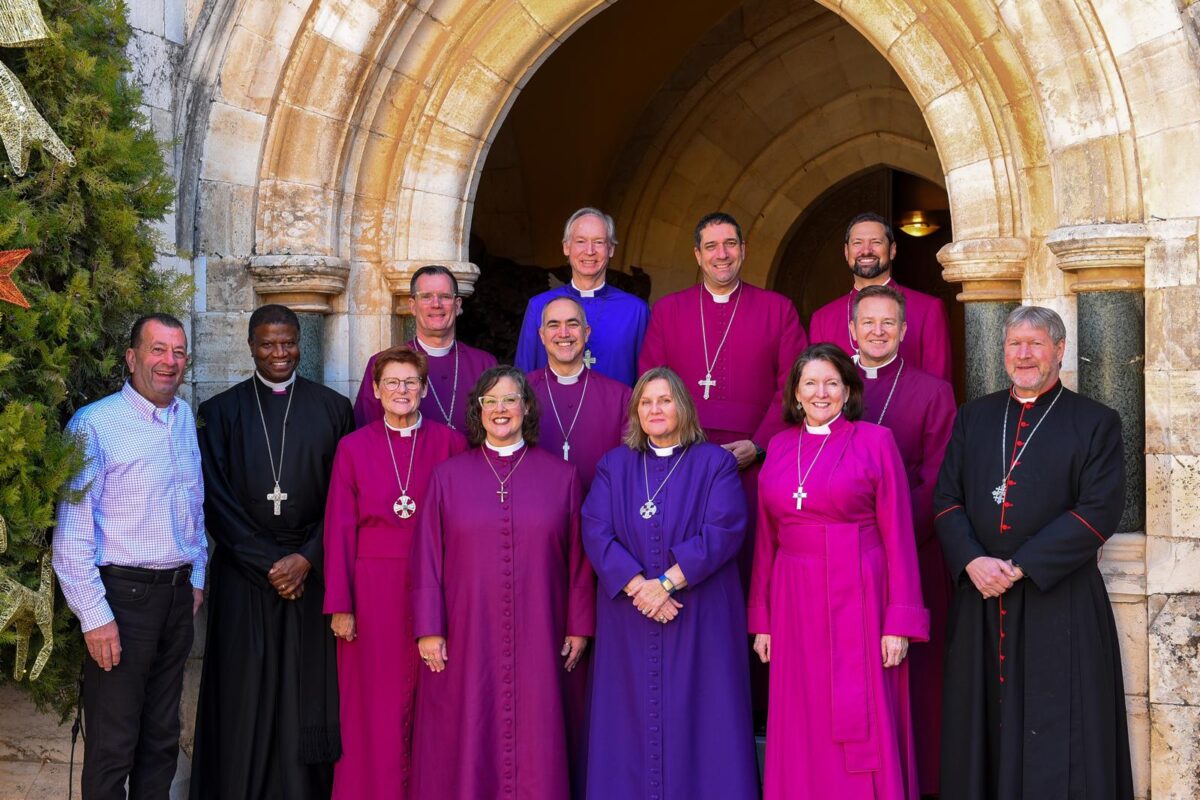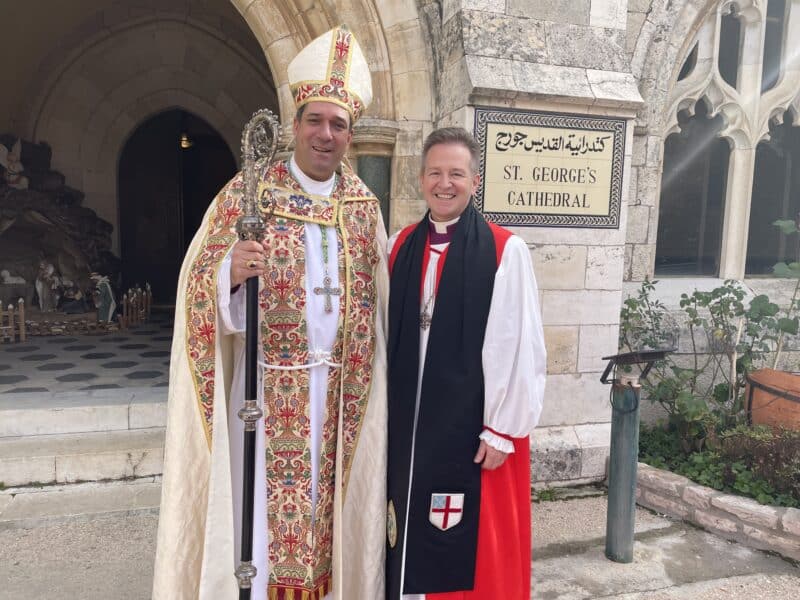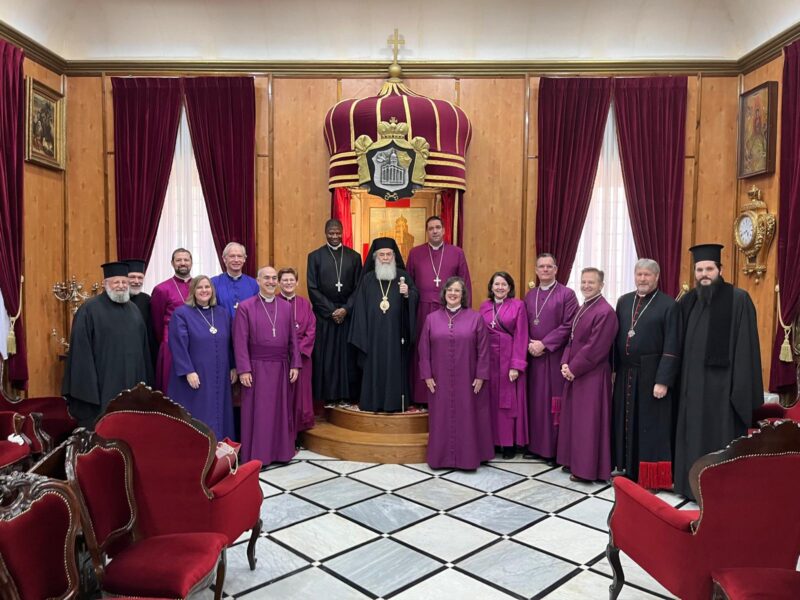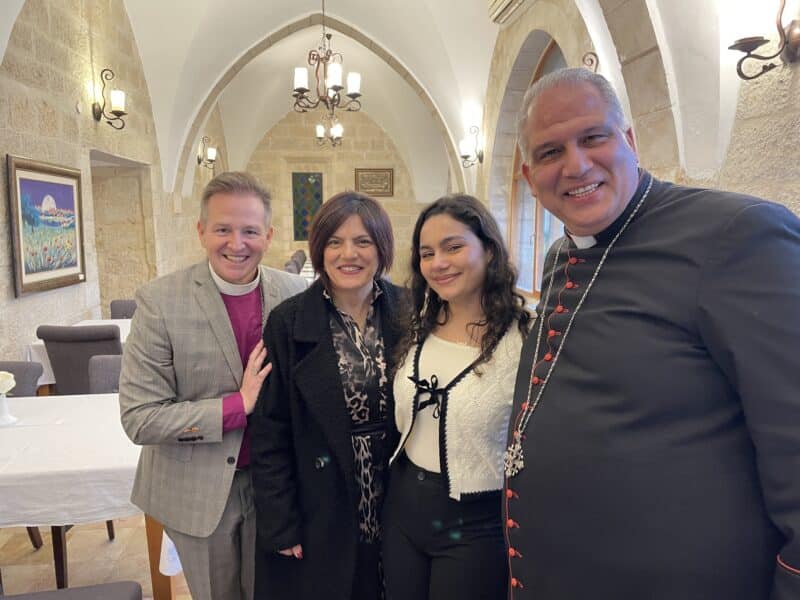
Have you ever been in the presence of a member of the clergy and thought to yourself, “Wow, he/she/they is clearly called”?
That’s what happened for me during my recent visit with Archbishop Hosam E. Naoum of the Episcopal Diocese of Jerusalem. Whenever he spoke, or whenever he was quiet, I felt the power of God through his remarkable leadership gifts (his way of being) emanating warmth, the sharpest intellect, and loving gratitude.

The pilgrimage was filled with learning after learning.
For example, I had no idea that Orthodox Christians (of every stripe), most Muslim leaders, and many Jewish leaders consistently regard the archbishop of the Episcopal Church as the primary sponsor of ecumenical and interfaith conversations. Since 1841, doubtless because of the influence of the British monarch and the Church of England, religious leaders in the “land of the Holy One” have opened their hearts and doors to the Bishop of Jerusalem. In this way, it’s historical and about the office. Yet in another way, I felt that Archbishop Naoum is given particular entree, and that when he speaks people listen. I surely did!
It was a moment-of-a-lifetime to be at the Church of the Nativity for Orthodox Christmas, and to be inside the Dome of the Rock, the Al-Aqsa mosque, both because of Archbishop Naoum. One of my fellow bishops said, “I’m dripping in privilege.” In reply the archbishop chuckled, but quickly added, with gravitas, “I’m sure it feels that way to you, but it’s our way to say ‘thank you’ for coming to us.”

The following are my takeaways from this solidarity pilgrimage with nine other Episcopal bishops:
- The Christians, especially, feel forgotten. People from around the world visited there all the time, and now, nobody has been there in 15 months. Furthermore, they hear from U.S.-based media that our nation “supports Israel.” More than one person said, “we are suffering” and “thank you for coming to be with us” and “please tell others to come.” In every conversation and every place, I felt that it didn’t matter what I said or did, just showing up was everything (this was true with Muslims and Jews, too).
- Christians are leaving in droves. They’re joining relatives in Detroit, Houston, and St. Louis—the American cities where more Palestinian Christians live than do in Bethlehem (which historically was 75-percent Christian, now it’s estimated to be 15 percent of the population), and also to countries throughout Europe and South America. The ones who remain—they call themselves Living Stones—are buoyed by our prayers and presence. They’re faith is strong, and it’s contagious.

For more on our trip, see this story from the Episcopal News Service.